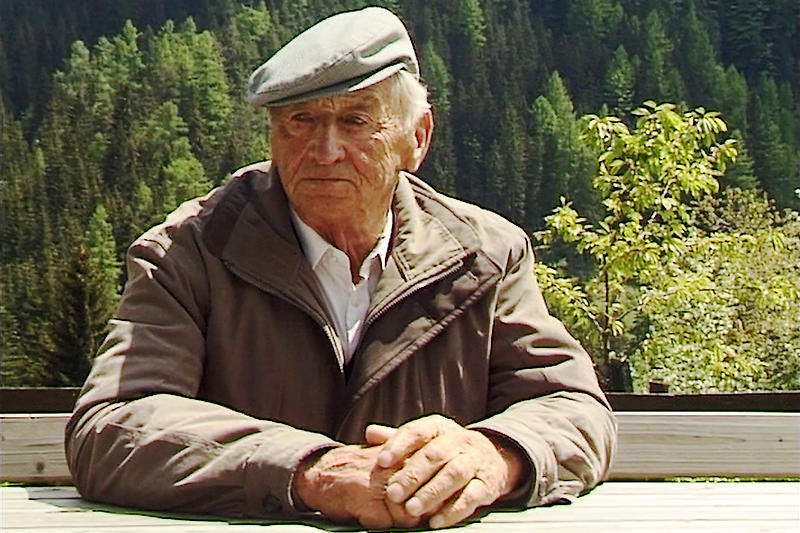
Der Kärntner spricht deutsch
With death as the only certain fate

"When we die, the Nazis will tell their story again," an old woman explains when asked by the director why she recalls images that are a visible burden to her. The film concentrates entirely on the characters and their accounts, from which a collective narrative is formed. This narrative is directed by Mračnikar, as she introduces themes such as gender relations among partisans, questions what has been said and takes the events of the past into the present. After the war, many Austrians resented the Carinthian Slovenes for having fought against Hitler. The fight for bilingualism reached a climax in the "Ortstafelsturm" (run on the road signs) of 1972, which is also discussed here. A large part of these memories would have been irretrievably lost today if Andrina Mračnikar hadn't recorded them. Her filmic examination of the memories impressively shows that even the young generation can’t possess a national identity without knowledge of the past. GL
Digi Beta | Dok. | Farbe / Colour
Andrina Mračnikar
Thomas Marschall
Peter Jaitz, Julian Wiehl
Paul Schön, Karin Hammer
Gregor Centner, Andrina Mračnikar
Andrina Mračnikar
Andrina Mračnikar
a.mracnikar@gmail.com
www.andrinamracnikar.com

Andrina Mračnikar - born in 1981 in Hallein, Austria. She studied art history in Vienna and film directing at the AGRFT in Ljubljana. In 2002 she started studying directing, writing and dramaturgy at the Vienna Film Academy. Graduated with distinction. After making several successful documentary films, she made her cinema debut in 2015. She is currently working on a new documentary (working title KEUTSCHACH / HODIŠE).
ANDRI 1924-44 (2002, doc, short)
ROSI ODER DAS FEUER (2004, short)
DIE WAND IST ABGERISSEN (2009, short)
MA FOLIE (2015)